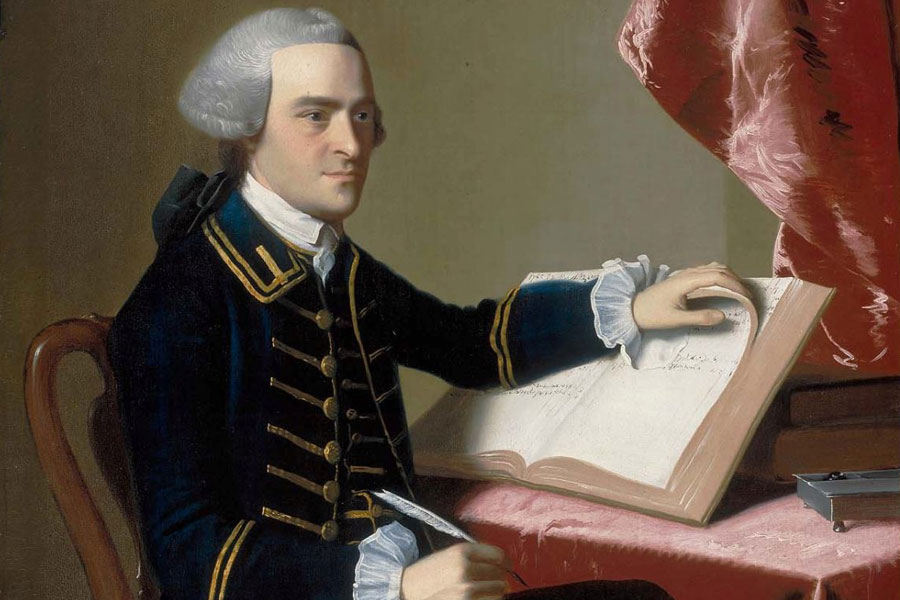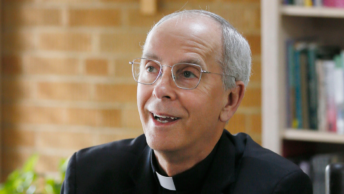When John Hancock affixed his signature to the Declaration of Independence, I wonder if he realized the extent to which his autograph would be viewed and replicated. Would he be surprised that his mark had become so integral within the American lexicon that, to this very day, when others seek our signature for legal documents, they pointedly exclaim:
“…Sir or Madam, put your John Hancock right here.”
With mid-September upon us, we are reminded by colorful leaves that cherished summer months have passed us by. At the same time, for those of us with a passion for baseball, this passing also means that the playoffs and World Series are upon us. In this regard, it is interesting to note the many bonds that have grown between fans and players during a long season of ups and downs. By attending and watching the games, following the box scores, and reading the many stories provided us by reporters, we begin to identify with a certain team and it’s players. For varied reasons, some become our favorites as a result of their ability to lead, hit home runs, or throw flaming fastballs. We root them on! Nevertheless, our ultimate connection with them occurs when we receive their autograph, especially when it is inscribed upon something that is meaningful to us.
In the course of our daily living, we, too, are required to sign many documents. Yes, letters, checks, tax forms, and other pieces of paper all pass beneath our pen, and after careful review, we place our signature, or mark, upon them. And in doing so, we give our consent, our approval, and our YES to each of them. In a similar way, parents do this with their children. Parental acts of kindness, love, and correction represent wishes for them, and, in a sense, our autograph upon them. In choosing to impart virtues rather than vices, we provide them with a road map for true success not just in this life, but for the next.
In considering this, one can imagine the Apostle’s feelings as he addressed the Galatians (3:1-5) after having felt that they had received the Spirit through his personal testimony of the Crucified Christ. Some scholars indicate that Paul’s narration of the Passion story was so real for those present that many felt as though they had actually witnessed the event of the Cross. It is clear that Paul deeply desired that they know that their heavenly Father loved them so much that He sent his Son into the world in order to move them to a new understanding of not just neighbor and self, but of God. Instead, he finds that his message has fallen upon deaf ears. How sad Paul must have felt when, after having received his life transforming message, the Galatians persisted in keeping the many ways of the Law. In a similar way, how sad it is for parents, who, after having spent many years loving and instructing their children in the ways of faith and love find that some of them have turned away from their life-transforming autograph. Despite the sadness of these situations, our hope comes from the power of prayer and persistence. A beautiful example is given through St. Monica, who continued to seek, ask, and knock on behalf of her son, Augustine. Through her prayers, she encountered the living God who granted her petitions and transformed her son into a great bishop and saint.
In the Gospel of Luke (11:2-4), Jesus provides us a prayerful way to encounter the Father. In giving us The Lord’s Prayer, we are provided insight regarding the ways in which the Father desires to place His autograph upon each of us. A few verses later, we are left to ponder…
“What father among you, if his son asks for a fish, will instead of a fish give him a serpent; or if he asks for an egg, will give him a scorpion? If you then, who are evil, know how to give good gifts to your children, how much more will the heavenly Father give the Holy Spirit to those who ask him!” (Lk 11:11-13)
While human fathers provide homes for their children to live in, our heavenly Father promises an eternal home. While human fathers provide bread that nourishes our children’s bodies, our heavenly Father provides the bread that will nourish their souls. While human fathers forgive their children’s faults, our heavenly Father forgives them their sins. In doing so, the Father seeks a relationship with each of us. Just yesterday, one of my daughters asked me for a definition of prayer. After thinking about this, I asked her to picture how she would come to know a little girl across the park whom she had never met. She quickly fired back: “I would walk up to her and ask her for her name.” Jointly, we had arrived at the definition of prayer: “talking to God.”
But as we note God’s desire for relationship with us, we also know that He respects our will. It is though at our baptism, each of us was given a traveler’s check to be carried on our earthly journey. It’s redemption, however, requires our counter-signature. By seeking, asking, knocking, and counter-signing that check, we invite God’s signature and mark upon our lives. By doing so, we are forever changed.








